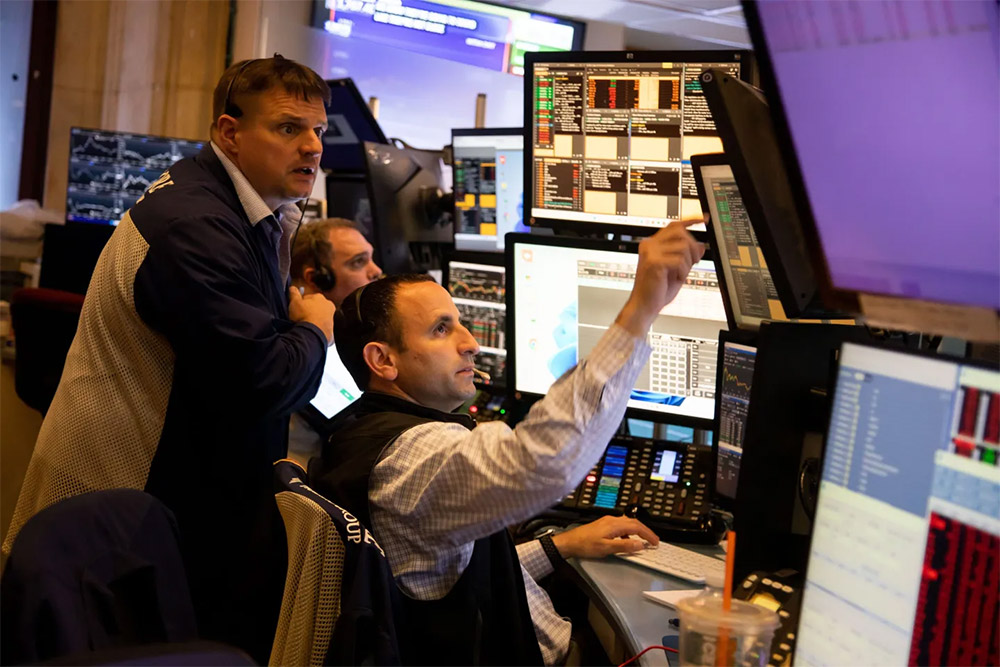
现在,回避型高管们可以把人工智能加入其财报电话会议的审查者名单。
据位于伦敦的投资策略师约阿希姆·克莱门特报道,德国明斯特大学(University of Münster)和华盛顿大学圣路易斯分校(Washington University in St. Louis)的研究人员发现,分析师可以利用大语言模型来推断高管们在财报电话会议上有没有开诚布公。
在研究过程中,研究人员将财报电话会议记录输入OpenAI的GPT-4 Turbo,以判断高管的评论是“寻常”还是“不寻常”。克莱门特解释说,当人工智能识别出不寻常的财报电话会议记录时,它就会列出自己的理由。
克莱门特表示,在一个例子中,人工智能分析了会议记录,并警告管理层可能在分析师的追问下仍在回避具体细节。当发言人提供冗长的回应和长时间讨论非财务话题时,人工智能最常标记出“不寻常”,而这正是高管们回避负面新闻的最常见方式。
自2022年ChatGPT发布以来,金融业已越来越多地将人工智能融入其日常运营。今年早些时候,摩根大通(JPMorgan Chase)推出了一款人工智能工具,帮助解读美联储主席杰罗姆·鲍威尔口中模棱两可的“美联储术语”。尽管如此,人工智能在选股方面产生重大影响的结果尚未得到证实。
最终,研究人员认为,人工智能通过更好地理解财报电话会议,可以帮助分析师预测市场。
研究人员在研究摘要中写道:“股票市场会对不寻常的金融信息做出负面反应,交易活动增加。当一家公司被识别出更多异常信息时,这种反应就会加剧。”
克莱门特指出,随着5月份OpenAI推出GPT-4o,分析师也可以将财报电话会议音频上传到大语言模型,或在直播过程中进行部署。
虽然分析师经常会自己捕捉到不寻常的言论,但这项技术可以让他们同时分析不同行业的多个财报电话会议。
克莱门特写道:“就我个人而言,我喜欢它,但作为企业高管,我可能不会喜欢它,因为ChatGPT让欺骗和分散注意力变得更加困难。”(财富中文网)
译者:刘进龙
审校:汪皓
现在,回避型高管们可以把人工智能加入其财报电话会议的审查者名单。
据位于伦敦的投资策略师约阿希姆·克莱门特报道,德国明斯特大学(University of Münster)和华盛顿大学圣路易斯分校(Washington University in St. Louis)的研究人员发现,分析师可以利用大语言模型来推断高管们在财报电话会议上有没有开诚布公。
在研究过程中,研究人员将财报电话会议记录输入OpenAI的GPT-4 Turbo,以判断高管的评论是“寻常”还是“不寻常”。克莱门特解释说,当人工智能识别出不寻常的财报电话会议记录时,它就会列出自己的理由。
克莱门特表示,在一个例子中,人工智能分析了会议记录,并警告管理层可能在分析师的追问下仍在回避具体细节。当发言人提供冗长的回应和长时间讨论非财务话题时,人工智能最常标记出“不寻常”,而这正是高管们回避负面新闻的最常见方式。
自2022年ChatGPT发布以来,金融业已越来越多地将人工智能融入其日常运营。今年早些时候,摩根大通(JPMorgan Chase)推出了一款人工智能工具,帮助解读美联储主席杰罗姆·鲍威尔口中模棱两可的“美联储术语”。尽管如此,人工智能在选股方面产生重大影响的结果尚未得到证实。
最终,研究人员认为,人工智能通过更好地理解财报电话会议,可以帮助分析师预测市场。
研究人员在研究摘要中写道:“股票市场会对不寻常的金融信息做出负面反应,交易活动增加。当一家公司被识别出更多异常信息时,这种反应就会加剧。”
克莱门特指出,随着5月份OpenAI推出GPT-4o,分析师也可以将财报电话会议音频上传到大语言模型,或在直播过程中进行部署。
虽然分析师经常会自己捕捉到不寻常的言论,但这项技术可以让他们同时分析不同行业的多个财报电话会议。
克莱门特写道:“就我个人而言,我喜欢它,但作为企业高管,我可能不会喜欢它,因为ChatGPT让欺骗和分散注意力变得更加困难。”(财富中文网)
译者:刘进龙
审校:汪皓
Evasive C-suite execs can now add AI to the list of those scrutinizing their earnings calls.
A study from researchers at Germany’s University of Münster and Washington University in St. Louis found that analysts can use large language models to infer when executives aren’t being forthcoming on earnings calls, reported London-based investment strategist Joachim Klement.
During the study, the researchers fed earnings call transcripts into OpenAI’s GPT-4 Turbo to gauge whether an executive’s comments were “usual” or “unusual.” When the AI identifies an unusual earnings call transcript, it will lay out its reasoning, Klement explains.
In one example, the AI analyzed the transcript and flagged that management was possibly avoiding specifics, despite being pressed by analysts, according to Klement. The AI flagged “unusualness” most often when speakers offered lengthy responses and long discussions about non-financial topics, some of the most common ways execs deflect negative news.
Since the launch of ChatGPT in 2022, the finance industry has increasingly incorporated AI into more of its day-to-day operations. Earlier this year JPMorgan Chase unveiled an AI tool to help interpret the ambiguous “Fedspeak” spouted by Chairman Jerome Powell. Still, the results of AI making a significant difference in stock picking is yet unproven.
Ultimately, the researchers believe AI could help analysts predict the market, according to the researchers by getting a better handle on earnings call
“The stock market reacts negatively to unusual financial communication, with an elevated trading activity,” the researchers wrote in the study’s abstract. “This response is exacerbated when more dimensions of unusual communication are identified for a firm.”
Klement points out that with the introduction of OpenAI’s GPT-4o in May, analysts could also upload the earnings call audio to the LLM or deploy it during the livestream.
While analysts often pick up on unusual comments themselves, the technology will allow them to analyze multiple earnings calls at once across industries.
“Personally, I love it, but as a corporate executive I probably wouldn’t because chatGPT makes it much harder to get away with deception and distraction,” Klement wrote.






